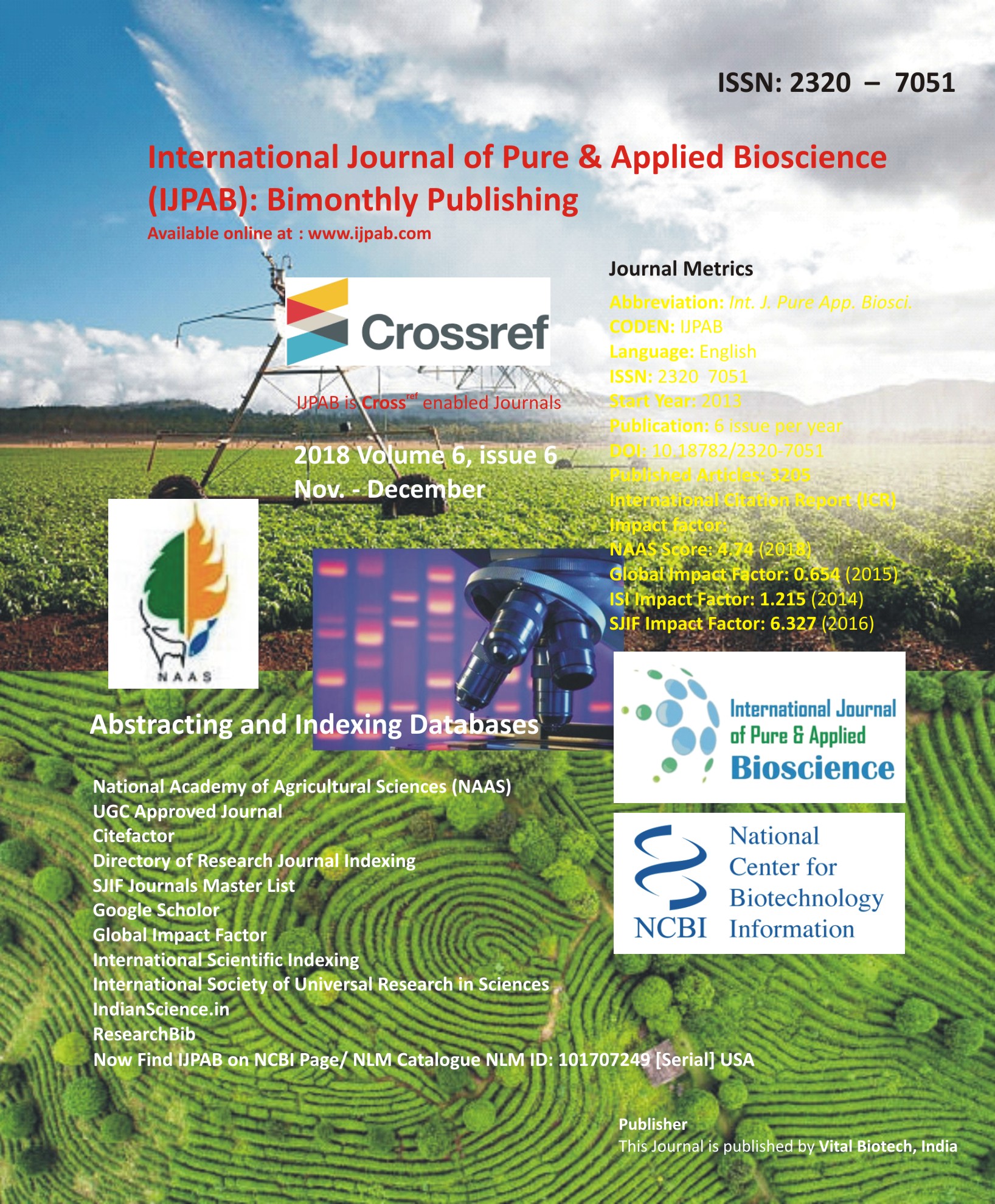
-
No. 772, Basant Vihar, Kota
Rajasthan-324009 India
-
Call Us On
+91 9784677044
-
Mail Us @
editor@ijpab.com
International Journal of Pure & Applied Bioscience (IJPAB)
Year : 2018, Volume : 6, Issue : 6
First page : (144) Last page : (156)
Article doi: : http://dx.doi.org/10.18782/2320-7051.7101
Growth and Development of Rapeseed Mustard and Other Field Crops under Different Sowing Dates
Ajeev Kumar, Dharamvir, Mahesh Kumar, Manish Jangra and Neeraj Kumar
Department of Botany and Plant physiology, CCS Haryana agricultural university, Hisar, Haryana
*Corresponding Author E-mail: ajeevk490@gmail.com
Received: 1.11.2018 | Revised: 3.12.2018 | Accepted: 10.12.2018
ABSTRACT
Indian mustard (Brassica juncea L. Czern) belongs to family Cruciferae, genus Brassica and species juncea popularly known as rai. Mustard is cultivated mostly under temperate climate. It is also cultivated in certain tropical and subtropical region as a cold weather crop. Appropriate sowing time is the most important non monetary input which contributes towards the greater yield as sowing time influences phenological development of crop plants throughtemperature and heat unit. Thus sowing at optimum time gives higher yields due to suitable environment that prevails at all the growth stages. During rabi season early sown crops exposed to low temperature at their vegetative stages while late sown crops experienced high temperature at their terminal stages of development. Transitory or constantly high or low temperatures causes an array of morphological, physiological and biochemical changes in plants. Temperature stress affects plant growth throughout its ontogeny, though heat-threshold level varies considerably at different developmental stages, for instance, during seed germination, may slow down or totally inhibit germination and at later stages, high or low temperature may adversely affect photosynthesis, respiration, water relations and membrane stability, enhanced expression of a variety of heat shock proteins, production of reactive oxygen species (ROS) and accumulation of osmolytes constitute major plant responses. This review describes the effect of sowing dates and temperature on growth and development of mustard plant and other important crops throughout its life cycle.
Key words: Sowing dates, Mustard, Growth, Temperature and Yield
Full Text : PDF; Journal doi : http://dx.doi.org/10.18782
Cite this article: Kumar, A., Dharamvir, Kumar, M., Jangra, M. and Kumar, N., Growth and development of Rapeseed Mustard and other field crops under different sowing dates, Int. J. Pure App. Biosci.6(6): 144-156 (2018). doi: http://dx.doi.org/10.18782/2320-7051.7101

